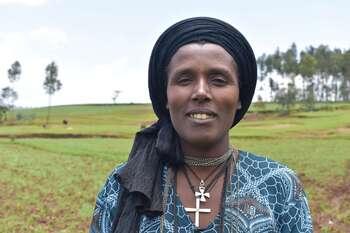Context
Indonesia is the world’s largest island nation with a fast growing demand for electricity. Presently there are over 600 local grids operated by the state utility PLN. Most of the power is generated with coal. Smaller grids are often powered with costly diesel fuel. Presently Indonesia’s electricity consumption is far below world average with an annual consumption of 1,000 kWh per person and year. In order to improve economic development and quality of life, the current power capacity will have to increase significantly during the next decades. Covering this need for electricity using an ecologically friendly as well as economic way is a challenge that lies ahead of Indonesia.
The Indonesian Government has recognized the potential of renewable energy as a domestic and environmentally friendly energy source which is widely available in the country. In its national energy plan it has set the target to reach a share of 23 per cent of renewable energy in the total amount by 2025. Meeting this goal is also essential for Indonesia’s commitment to the 2015 Paris Agreement to reduce greenhouse gas emissions by 29 per cent by 2030.
However, so far there is little experience in Indonesia of how to integrate renewable energy into the numerous local grids and how to include them into power system planning; the intermittence of solar and wind energy is a matter of particular concern. Successful examples of grid integrations of renewables need to be demonstrated and scaled up to overcome these concerns and the numerous technical, administrative and regulatory challenges.
The Directorate General of New Renewable Energy and Energy Conservation (EBTKE), in cooperation with GIZ, acting on behalf of the German Federal Ministry for Economic Cooperation and Development (BMZ), has decided to jointly implement the 1,000 Islands - Renewable Energy for Electrification Programme (REEP).
Objective
Achieving a 23 per cent share of renewable energies in Indonesia has turned out to be a feasible goal.
Approach
The Renewable Energy for Electrification Programme’s implementation strategy employs a holistic, bottom-up approach that takes into account the diverse aspects regarding technology, research and finance while observing the issues of renewable energy in Indonesia.
The project will start with selecting two typical island grids with good replication potential. In these two grids, REEP will demonstrate 23 per cent of renewable energy integration into the State Electricity Company (PLN) grids. REEP will install a monitoring system to prove the technological and economic feasibility of the renewable energy grid integration in these two grids.
The monitoring system will also be used for training purposes and capacity building of the stakeholders such as EBTKE, Directorate General of Electricity (DJK), PLN and private sector.
After the completion of two pilot grids, REEP will continue with three other island grids in the scaling-up phase. Results from 5 island grids, including power system planning for the next 10 years will be incorporated in PLN’s electricity procurement business plan (RUPTL). Furthermore, the results will also replicate to more than 600 grids across Indonesia.
REEP will also disseminate the results of pilot projects through trainings to PLN and private sectors. The training will include the know-how of creating business proposals.
